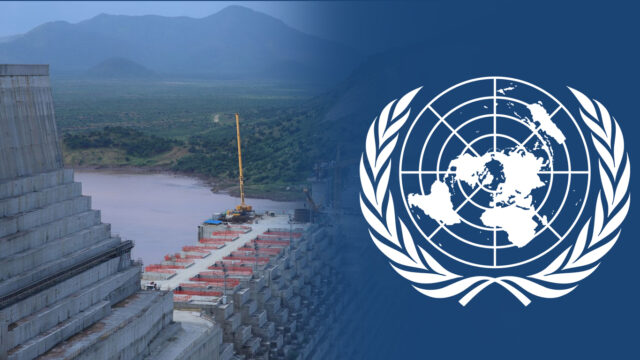Years of unsuccessful discussions between Ethiopia on the one hand, and Egypt and Sudan on the other, culminated in the Doha summit.
Arab foreign ministers endorsed calls for the UN Security Council to intervene in Ethiopia’s contentious dam project on one of the Nile River’s key tributaries on Tuesday.
The decision was made during a diplomatic summit in Qatar convened by Egypt and Sudan, two downstream Nile countries. In a press conference, Arab League Secretary-General Ahmed Aboul Gheit said the Arab countries will persuade the Security Council to hold an emergency session on the decade-long dam conflict.
Identifying a framework to deal with future water disputes, as well as how the river’s supplies should be divided during droughts, have been the key sticking points in previous agreements. The news came as Egypt and Sudan applied diplomatic and political pressure on Ethiopia ahead of the dam’s scheduled second phase of construction.
“There is a united Arab position,” Qatar’s Foreign Minister Mohammad bin Abdulrahman Al-Thani said in the same press conference following the meeting attended by 17 foreign ministers from the region. “Water security is about survival for mankind and the peoples of Sudan and Egypt.”
Egypt’s Foreign Ministry announced on Friday that it had written to the United Nations Security Council to explain its position. In prior African Union-supervised discussions, Ethiopia was accused of failing to help create a “fair, balanced, and legally binding” deal. Ethiopian leaders did not respond immediately.
Ethiopia has claimed that the dam, which it has completely funded, will serve to lift millions of Ethiopia’s nearly 110 million people out of poverty and turn the country into a major electricity exporter. After Egyptian, Sudanese, and Ethiopian officials failed to reach an agreement on the project in April, Egyptian President Abdel Fattah El-Sisi declared that “all alternatives are open if a drop of water belongs to Egypt is touched.”
The Grand Ethiopian Renaissance Dam is Ethiopia’s dream for economic progress and power generation. However, Egypt, which depends on the Nile for up to 90% of its freshwater, views the project as a potential existential danger, while Sudan is concerned about the operation of its Nile dams and water stations.
Aboul Gheit highlighted Egypt’s and Sudan’s water security as a vital aspect of Arab national security during a press conference following the meeting of 17 Arab foreign ministers.









